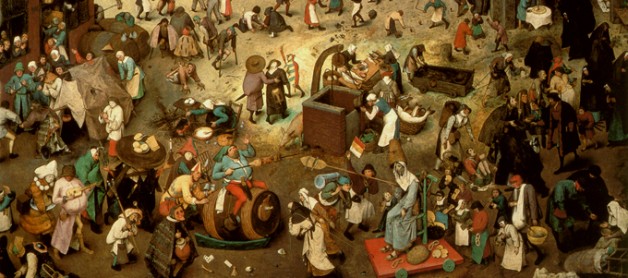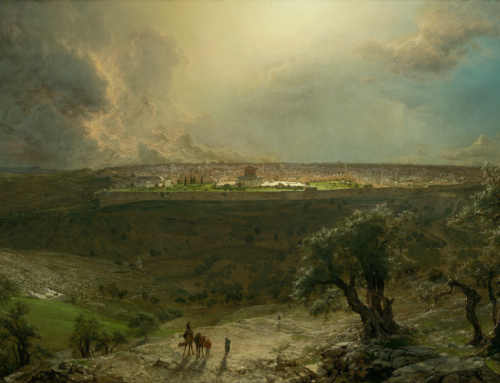My senior year in college, the house I lived in was explicitly Catholic. We had a crucifix and pictures of the pope and saints on the wall in the living room and many other obvious symbols of our faith. Yet our house was also a popular hangout for a lot of the normal college crowd that had nothing do with any church. For whatever reason the environment warmed people up to addressing their issues with the Church. As such I had many opportunities to discuss the faith with non-believers, sometimes late into in the night.
I always found it bothersome when my interlocutor would speak about “your God.” If I am right about my belief, then my God is God, Creator and Ruler of all, which means he’s your God too. I thought of it as just another example of that annoying relativism that makes nailing down enough intellectual flooring to sustain a true conversation impossible. Then I started reading the Old Testament more closely.
God in the Old Testament is called Abraham’s God, Israel’s God, Joseph’s God, his God, your God, my God, and so on. Referring to God by his servants reflects the fact that every people in the pre-Christian era had its own local gods. The power of their gods was thought to determine which people dominated and which served. Sacred Scripture turns this conception on its head, because the success of Israel’s enemies is not a result of the power of their gods, but of Israel’s disobedience of the one God.
If the scriptures don’t have a problem talking about God as the true claimant to the title, who exceeds many false rivals, then how can I complain if someone particularizes the one, true God as “your God”?
Israel’s uniqueness is that the God they worship, who made a covenant with them, is the one true God. As the psalmist puts it:
[O]ur God is in the heavens;
He does whatever He pleases.
Their idols are silver and gold,
The work of man’s hands.
They have mouths, but they cannot speak;
They have eyes, but they cannot see;
They have ears, but they cannot hear;
They have noses, but they cannot smell;
They have hands, but they cannot feel;
They have feet, but they cannot walk;
They cannot make a sound with their throat (Psalm 115:3-7).
How did we get to be in a world where someone calling God “your God” seems belittling to God rather than a great honor for me the unworthy servant?
Simply put, Christianity has left those other gods in the dust. There are no more serious believers in Zeus or Apollo. Ask yourself, “Do those modern druids really believe in tree-spirits?”
God’s modern competitors aren’t pagan deities, but abstract concepts. People don’t reject Abraham’s God because Mars wins more wars or Bacchus is more fun. They reject him, because they think that everything can be explained without reference to any god. Even the pagan gods have been replaced with mere ideas. It’s not Mars that leads men into battle, but technology. Bacchus isn’t the life of the party, but more overt notions of pleasure.
When we reject the label “your God” for the Holy Trinity, it is because we in some way reject this framework for God as a concept or idea. I don’t want God to be limited to my idea of Him; I want it acknowledged that we are talking about the One who made us.
If we think of God as personal—as the revealed Creator who took the form of man in Jesus Christ—we can accept him as our God. God can have a relationship with men that allows him to be called their God, because he is real and personal. He is Abraham’s God, because they had a covenant. And by his grace, he is my God through baptism in Christ Jesus.
The next time someone asks me, “What would your God say about this?” I plan to reply, “He can be your God too.”
It is a privilege to call God “my God.” It means that I have a relationship with the almighty Creator of the universe. The one true God: Father, Son, and Holy Spirit.
Image: Brueghel the Elder, The Fight Between Carnival and Lent







